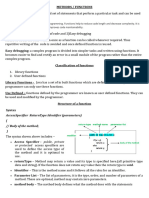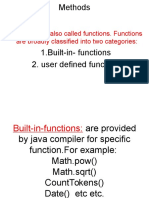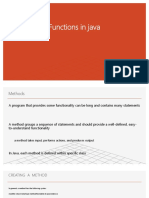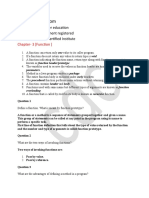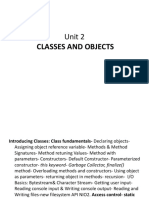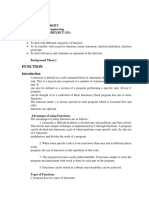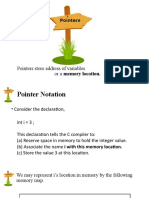0% found this document useful (0 votes)
43 views7 pagesUser Defined Methods and Constructor
The document explains user-defined functions in programming, detailing their components, advantages, and types, including predefined and user-defined functions. It covers function prototypes, definitions, calling methods, and the differences between parameterized and non-parameterized functions, as well as call by value and call by reference. Additionally, it discusses function overloading and constructors, including their types and overloading concepts.
Uploaded by
Mark wahlburgerCopyright
© © All Rights Reserved
We take content rights seriously. If you suspect this is your content, claim it here.
Available Formats
Download as PDF, TXT or read online on Scribd
0% found this document useful (0 votes)
43 views7 pagesUser Defined Methods and Constructor
The document explains user-defined functions in programming, detailing their components, advantages, and types, including predefined and user-defined functions. It covers function prototypes, definitions, calling methods, and the differences between parameterized and non-parameterized functions, as well as call by value and call by reference. Additionally, it discusses function overloading and constructors, including their types and overloading concepts.
Uploaded by
Mark wahlburgerCopyright
© © All Rights Reserved
We take content rights seriously. If you suspect this is your content, claim it here.
Available Formats
Download as PDF, TXT or read online on Scribd
/ 7


